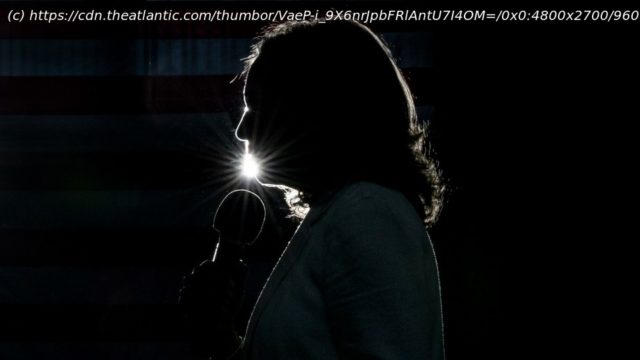Americans just don’t know the Democratic nominee’s story.
No presidential nominee in decades has approached their convention with a greater opportunity to reshape their public image than Vice President Kamala Harris.
Harris is the first nonincumbent since Hubert Humphrey in 1968 to claim either party’s presidential nomination without first enduring months of grueling primary contests. Because Harris did not experience the setbacks and triumphs that come from waging such a fight, public impressions of her are uncommonly shallow for a nominee on the convention’s eve, strategists in both parties agree.
That gives Harris a chance to benefit more than usual from the Democratic gathering in Chicago later this month if she can flesh out her story in an engaging way—but also leaves more room for Republicans to define her in negative terms. “We probably haven’t in modern times seen anybody emerge as the nominee who is less well known,” the longtime Democratic strategist Robert Shrum told me. “Her first impression with people is obviously extremely positive. But now you want to fill in the canvas.”
By choosing Minnesota Governor Tim Walz as her vice-presidential nominee on Tuesday, Harris did little to advance that process. Walz is personable, a good campaigner, and unobjectionable to any major Democratic faction. But other options might have provided star power (Arizona Senator Mark Kelly), relevance in a key swing state (Pennsylvania Governor Josh Shapiro), or a generational contrast (Kentucky Andy Beshear) that Walz does not. He looks like Hillary Clinton’s pick, Tim Kaine—a do-no-harm choice that, if the race goes sour, will be seen as a missed opportunity to make a bolder statement.
The Democratic National Convention in Chicago, which starts on August 19, now offers Harris her next opportunity to sharpen her image before Republicans do. In modern times, the candidate who has used the convention period best was Bill Clinton, who showed in 1992 how powerful a tool the convention can be in addressing loosely held, or even erroneous, perceptions among the voters.
The Arkansas governor had beaten a weak field to win the Democratic nomination, but his victory left him badly damaged by revelations that he had engaged in extramarital affairs and maneuvered to avoid being drafted for the Vietnam War. After he clinched the nomination in early June, a succession of general-election polls showed him in third place, trailing not only Republican President George H. W. Bush, but also Ross Perot, the quirky independent candidate.
Over the next several weeks, Clinton and his team engineered a remarkable turnaround built on a plan that his campaign dubbed the “Manhattan Project.” Its most important revelation was that most voters mistakenly thought Clinton was a child of privilege because he had attended Georgetown and Yale, won a Rhodes Scholarship, and avoided Vietnam. Once voters learned that he had suffered through a difficult upbringing with an alcoholic stepfather In a small Arkansas town, they became much more likely to view him as genuinely committed to improving life for the middle class that he had emerged from.






